'We can reach you wherever you are': Uighurs abroad feel China’s reach
China’s security services are pressing members of the country’s Uighur minority abroad to spy on compatriots when abroad, including in Nato and Western countries
Your support helps us to tell the story
From reproductive rights to climate change to Big Tech, The Independent is on the ground when the story is developing. Whether it's investigating the financials of Elon Musk's pro-Trump PAC or producing our latest documentary, 'The A Word', which shines a light on the American women fighting for reproductive rights, we know how important it is to parse out the facts from the messaging.
At such a critical moment in US history, we need reporters on the ground. Your donation allows us to keep sending journalists to speak to both sides of the story.
The Independent is trusted by Americans across the entire political spectrum. And unlike many other quality news outlets, we choose not to lock Americans out of our reporting and analysis with paywalls. We believe quality journalism should be available to everyone, paid for by those who can afford it.
Your support makes all the difference.Eysa thought he had finally escaped the shadowy Chinese security services that had pressed him into serving as a spy against his own community and turned his life in Xinjiang province into a living hell for three years. He had moved himself and his family to Turkey, and begun to carve a new life out for himself among the ethnic Uighur Muslims seeking refuge in a country with a language and religion similar to his own.
Then the 36-year-old began receiving messages on his phone from Qurban, the state security official who had detained him, pressed him into collaborating with the Chinese services, and then sought to throw him to the wolves when he had proven himself useless.
“Eysa,” his interrogator begins, in one of several recordings he retained on his phone and plays for The Independent. “ You think you’re safe in Turkey. But what about your brothers and in-laws?”
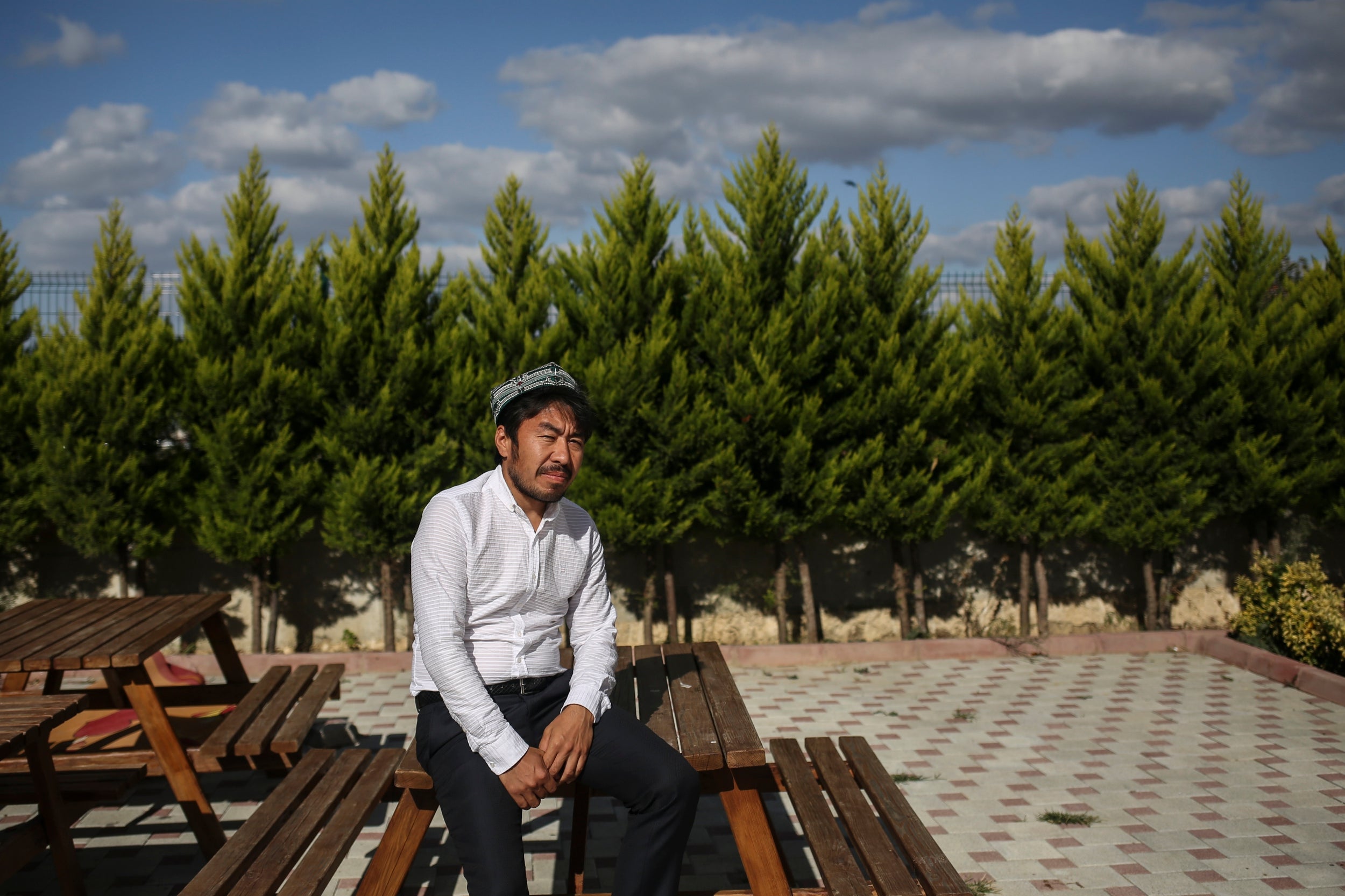
Human rights advocates in recent years have raised alarms about the treatment of China’s Uighur minority, a Turkic language-speaking, mostly Muslim population concentrated in the nation’s western Xinjiang province. The UN in August voiced concern that perhaps a million Uighurs were being held in conditions resembling a “massive internment camp that is shrouded in secrecy”.
But increasingly, say members of the community, security professionals and scholars, the crackdown on Uighurs is extending across the globe, with Chinese operatives threatening to silence, intimidate and blackmail those who make it abroad.
In addition to Istanbul, experts close to the Uighurs living abroad say the Chinese security forces are seeking to infiltrate, recruit spies, and threaten embers of the ethnic group in Munich, Frankfurt, Stockholm, Oslo and Helsinki.
The goal, say scholars, is to pressure Uighurs into serving as intelligence assets when they’re abroad, as well as to sow friction and mistrust among members of the ethnic group seeking refuge abroad. “Just the fact of being able to travel abroad and coming back home puts them under suspicion,” says Rune Steenberg, an expert on China’s Uighur minority. “It destroys the community.”
Just the fact of being able to travel abroad and coming back home puts them under suspicion
Inspired by his time studying linguistics at the University of Kansas on a Ford Foundation scholarship, Abduweli Ayup returned to China and launched a preschool for kids, teaching in English, Chinese, as well as Uighur. It became enormously popular, with Xinjiang’s elite enrolling their kids. But the scholar’s project raised the suspicion of the authorities, who warned him to shut down his school, and in 2013 arrested him when he refused.
He spent 15 agonising months in prison, where he says he was subject to torture and sexual assault. “My life was full of humiliation and full of torture,” says Ayup.
“From eight in the morning until six in the evening they interrogated me in the interrogation room,” he continues. “Those officials get tired and go home. That’s when the problems start. Then I am humiliated and tortured in the detention cell. They insult me, and my sex. It’s very hard for me as a man. Those guys did sexually attack me.”
In addition to prisons, Beijing authorities have set up a network of “re-education camps” where Uighurs are taught about the dangers of Islam and the superiority of Chinese culture and the Communist Party ideology over their own customs.
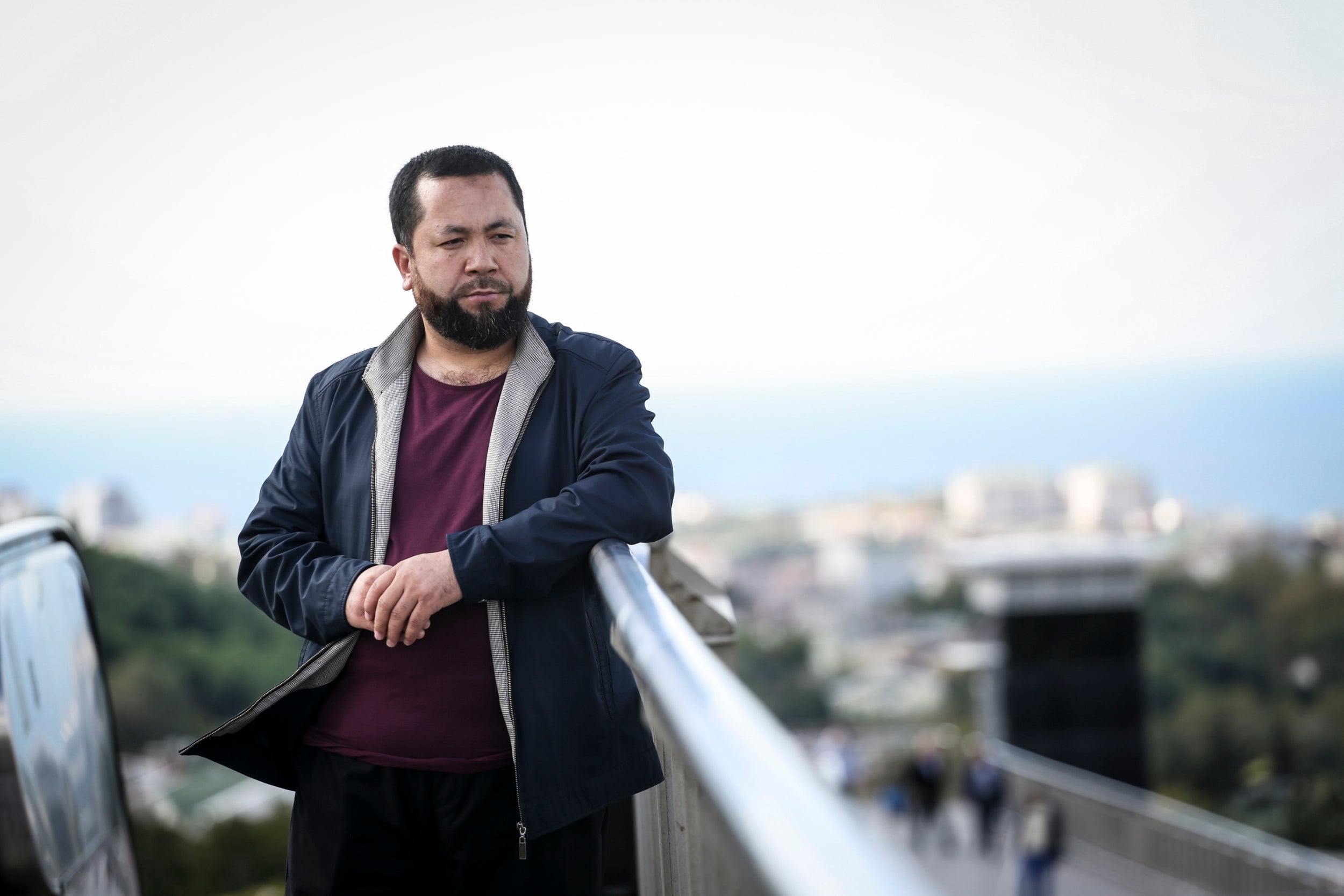
“From very early in the morning we wake up and are forced to run for an hour, and then breakfast, and then four hours of classes, and then fours in the afternoon and then classes until 10pm,” says Abdursalam Mohammed, a 40-year-old cook from the Xinjiang city of Hotan. He fled China in late 2016 after spending seven weeks at a re-education camp.
A draconian system of checkpoints makes life unbearable even outside the camps. Loudspeakers affixed to utility poles suddenly announce mandatory ideological indoctrination classes in villages and neighbourhoods. “When you hear the voice on the loudspeaker, you know you have to run to the meetings,” says Mohammed, now residing in Istanbul.
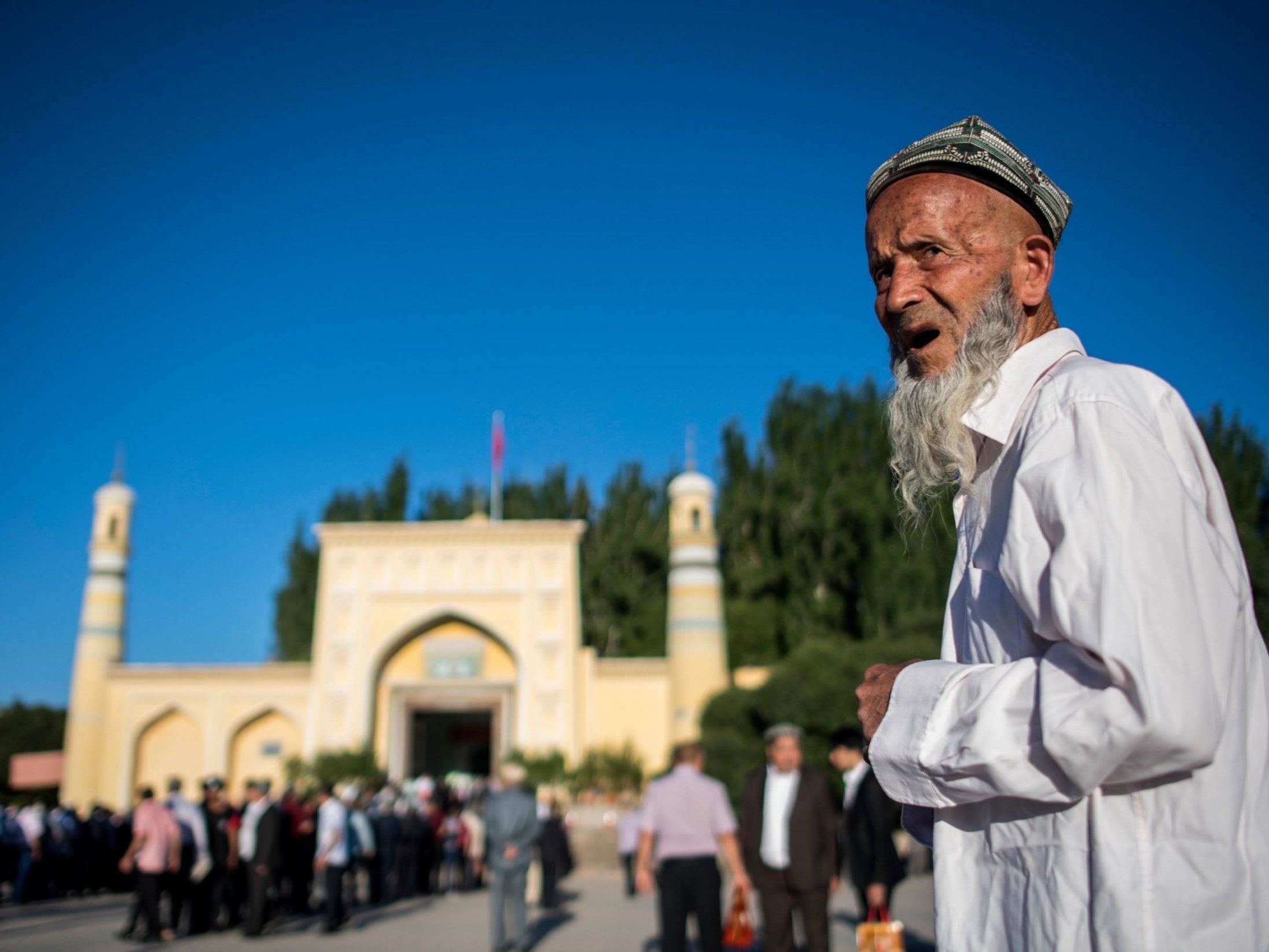
Eysa’s entanglement with China’s security services began on 23 October 2015, after he returned with his family from a trip to Turkey. He was detained on arrival at the Urumqi Diwopu International Airport, shackled, had his jacket pulled over his head, and whisked away to an army base where he was held for two days, and then taken to an encampment which belonged to the Xinjiang Production and Construction Corps, a government paramilitary organisation, for six weeks.
During hours-long interrogations, he was accused of contacting separatist groups while in Turkey and Malaysia. He explained that he travelled abroad only to purchase soaps, spices, and herbs for his shop. He says he was not subject to torture. The Chinese had other plans for him. His interrogator, Qurban, played the good cop.
“He told me, ‘Yes, I know you are innocent,’” Eysa, whose last name is being withheld for security reasons, recalls. “‘But the problem is we need someone to work with us.’ He told me, ‘If you want to keep running your business, and travelling abroad, you have to spy for us on other Uighurs.’”
They insult me, and my sex. It’s very hard for me as a man. Those guys did sexually attack me
China’s ethnic Han-dominated society and Communist Party has long looked suspiciously upon the Uighurs, a Sunni Muslim minority with strong ethnic and cultural ties to Turkey and Central Asia. Chinese central government repression of Uighurs escalated dramatically with a series of terrorist attacks claimed by Islamists and separatists that began in the 1990s, with tensions exacerbated by the arrival of Han Chinese seeking economic opportunities in the undeveloped region.
On 22 May 2014, men in two vehicles began hurling explosives at shoppers in a busy street in Urumqi before blowing themselves up, killing 43 people and injuring nearly 100, prompting a ferocious and unprecedented clampdown by security forces.
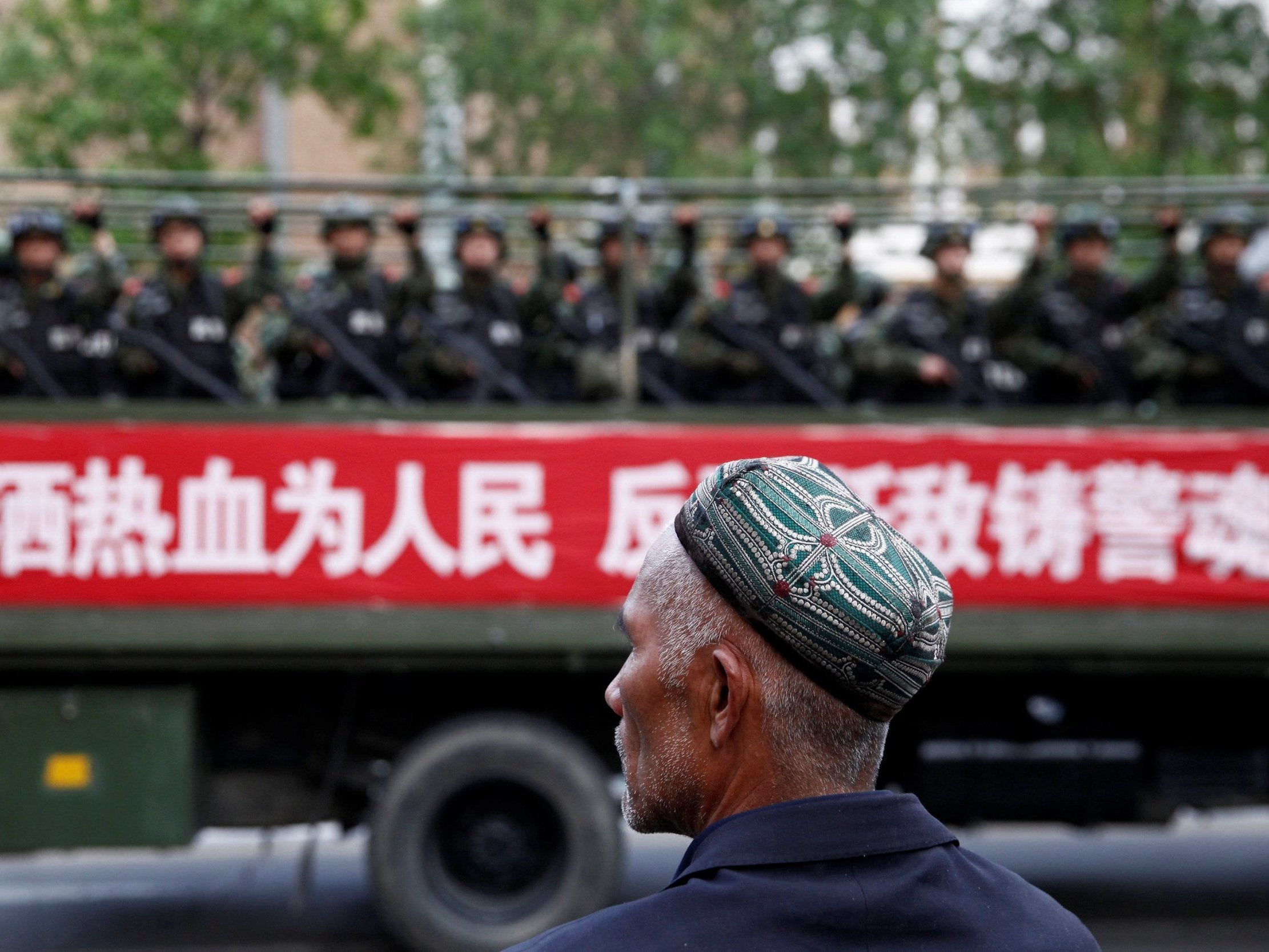
Chinese officials have been struggling hard to keep stories about Xinjiang under wraps, and to control the activities of even those Uighurs living abroad. Experts say the Chinese intelligence services have long pressured or recruited citizens studying abroad as assets or informants, but that the Uighur infiltration is far more pervasive.
“It goes further with Uighurs and goes beyond students,” says Michael Dillon, a Sinologist and historian. He spent years travelling in and out of China’s Xinjiang province for research.
Steenberg says he’s spoken repeatedly to Uighurs who’ve been offered benefits or money to keep an eye on the communities, with initial approaches sometimes disguised as innocuous requests for help. “The recruitment as a spy is often a slow and sneaking process, and not an overt one,” says Steenberg.
Eysa says he agreed to spy, but only to get his passport back so he could continue to travel to Turkey for business. He says he didn’t really know many Uighurs abroad and none that were up to nefarious activities or attached to separatist or violent groups.
He was arrested again a little more than a year later after arriving back from a trip to Turkey. Qurban got him released, but he was summoned by police again on 18 March 2017, and taken to a detention camp. His relatives were also arrested.
This time, the conditions were harsher and filthier, and Eysa was subject to gruelling interrogations. They accused him of failing to come up with any intelligence while abroad. “They said, ‘You didn’t do anything for us,’” he recalls.
Qurban had him released again, with the stipulation that he would attend a re-education workshop for a day and try harder to gather intelligence next time he was abroad. He left again for Turkey in June 2017.

But Qurban had seriously misread Eysa. Instead of spying, he moved to Turkey permanently, refused to go back home, and then began writing about his experiences at the hands of the Chinese authorities in social media posts that went viral. That’s when the phone messages started. “I helped you to get your passport and got you out of prison twice and you didn’t do anything for us,” Qurban said in a message sent in May.
“Yes, you are in Turkey,” he said in June. “But your brother, brother-in-law, and father-in-law are in our hands. If we torture them it’s on you. Think about that. We are very powerful and we can reach you wherever you are.”
After years of allowing Uighurs relatively free travel abroad, Chinese authorities have severely restricted them from leaving since around the summer of 2017, in what scholars believe is an attempt to keep the lid on stories they might tell about the ongoing repression inside Xinjiang.
“When people are working abroad, they are told they have to return or they will lose their properties,” says Steenberg. “They’re told, ‘You musn’t say anything bad, or terrible will things will happen to your family.’”
Ayup, who serves informally as a community leader for Uighurs in Turkey, says he’s repeatedly been in touch with other members of the community who’ve been harassed by Chinese security officials, even from abroad. During one video chat, the Chinese enforcer put an Uighur man’s terrified, elderly parents on the screen and demanded he spy on fellow Uighurs in Turkey, note addresses, their connections to each other, sources of income, names and activities of civic groups, and the locations and actions of former detainees.
“They told him he has to work for them,” recalls Ayup. “Otherwise they will put his mother and father in jail. ‘If you work for us you can live freely. If you don’t, we’ll put your parents into jail. If you love your parents you are a patriot. If you don’t, we will put them in a detention centre.’”
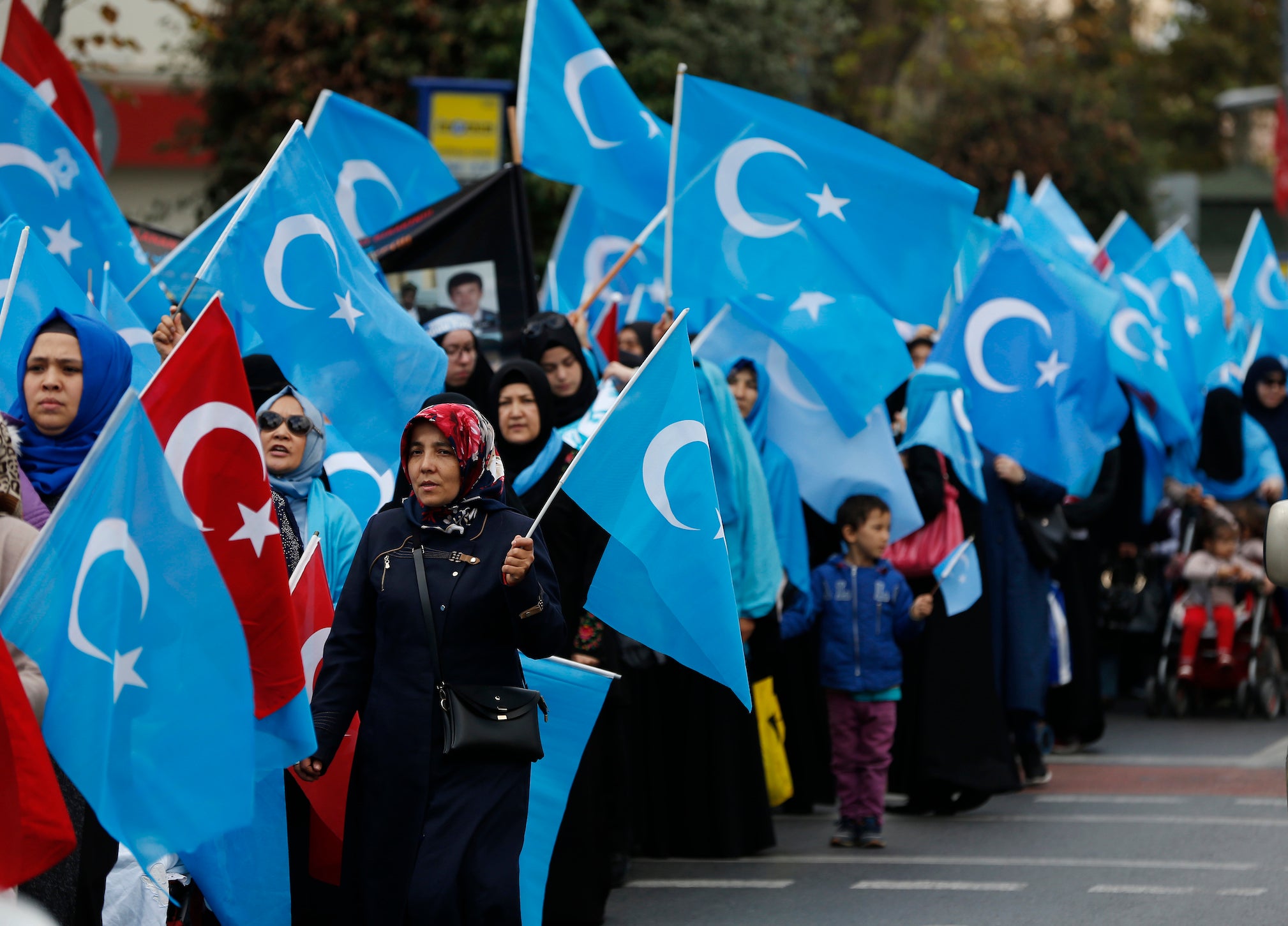
The heavy-handed measures against the Uighurs may wind up backfiring. Instead of targeting terrorist networks, Chinese authorities are “going after the whole thing”, says Steenberg, engendering a global revulsion.
“It’s really a paranoia on the side of Chinese state,” he says. “They didn’t know what they were up against and they panicked.”
The repression is coupled with uneven economic development in the Xinjiang region that has benefited newly arriving Han businesspeople more than Uighurs, who have been displaced from local governance and lost out on contracts, exacerbating grievances and feeding the potential for a violent reaction.
“The Chinese government forces us to take action,” says Mohammed. “They arrest my brothers and sisters. They don’t allow me to read what I want, think what I want. These things force us to act.”

Join our commenting forum
Join thought-provoking conversations, follow other Independent readers and see their replies
Comments